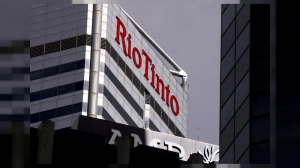


(Posted on 11/04/23)
In the lead up to its Annual General Meetings, Rio Tinto is engaging with investor and civil society organisations on an enhanced approach to advocacy to support the decarbonisation of its operations, in line with the goals of the Paris Agreement.
The discussions have highlighted the need for greater transparency and conversation on the critical role of government policy signals in decarbonisation by creating the right framework for change in hard to abate industrial value chains, coupled with real business action and societal shifts.
Rio Tinto put the low carbon transition at the heart of its business strategy in 2021, setting a clear pathway to provide the materials the world needs for the energy transition and ambitious targets to decarbonise its business.
Rio Tinto’s enhanced climate advocacy approach will include publishing briefing papers on specific assets and emission sources this year, detailing how the right policy-settings can support its Scope 1 and 2 emissions targets, which are aligned with the goal of limiting global warming to 1.5°C, as well as decarbonising the wider value chain. Rio Tinto will engage with the Australasian Centre for Corporate Responsibility during the development of these briefing papers, particularly on the detail included on the identified policy-settings.
Summary of Rio Tinto’s positions on climate change policy:
– grant funding, tax incentives and investment incentives to support R&D, innovation and first-of-a-kind projects
– product standards and procurement obligations (such as minimum and rising requirements for low or zero carbon metal) that drive deployment of pre-commercial technology.
ADM and Mitsubishi Corporation have signed a non-binding memorandum of understanding to form a strategic... Read more
ESL Shipping and global steel manufacturer SSAB have agreed on a multi-year extension of the agreement... Read more
Anglo American’s Sakatti copper and polymetallic project in Finland has been designated as a &... Read more
FEFAC, representing the EU compound feed and premix manufacturers, noted with deep concern the announced... Read more
Catering to the growing demand from India’s confectionery, infant formula, and dairy sectors,... Read more
Khalifa Economic Zones Abu Dhabi – KEZAD Group, the largest operator of integrated and purpose... Read more
Rio Tinto will invest $1.8 billion1 to develop the Brockman Syncline 1 mine project (BS1), extending... Read more
Catherine Cobden, President and CEO of the Canadian Steel Producers Association (CSPA), has released... Read more
Enough domestic ferrous scrap is available for electric arc furnace (EAF) steelmakers to supply nearly... Read more
Cargill’s Ocean Transportation business and leading tanker shipping company, Hafnia, have joined... Read more